- Home
- Anne Stuart
Seen and Not Heard Page 3
Seen and Not Heard Read online
Page 3
A cold, wet breeze blew in his open window, and he shivered lightly. Maybe it was time to go back.
Chief Inspector Malgreave leaned his weary face out into the rain, letting the cool mist cover him. He couldn’t sleep—he never could on rainy nights. Not since they’d realized that the old women were always murdered in the rain. He would lie there, careful not to wake Marie, and picture Rocco Guillère skulking through the city.
He had to get over that fixation. Rocco was only part of the answer. There had to be at least three different people murdering the old women—Rocco was only one of them. Homicide had borrowed some of the best minds in law enforcement in the world, and the physical evidence they were amassing was prodigious. But given the angles of the wounds, the saliva on the women’s mouths, the traces of hair and fiber, it was certain they were dealing with perhaps a whole band of lunatics.
He shivered. His mother’s mother had been a warm, comfortable farm wife in Provence, with a ready cuff to the ear and an inexhaustible supply of cakes for a greedy grandson. His father’s mother had been more austere—a retired schoolteacher who stood no nonsense. He’d loved them both, grieved when they died, and then continued on with his life. Who could hate old ladies so much that they would deprive them of their last few years on this earth?
Of course, the lives that were snuffed out weren’t always the most pleasant. The women lived alone, in tiny, crowded apartments, living out their days in discreet, genteel penury. He’d toyed with the idea that the murderers were fanatics, convinced they were doing the old women a mercy by ending their lonely existence.
But he didn’t think so. It didn’t ring true, any more than the notion of copycat killers felt right to a man of his remarkable instincts. But he had to be wrong about the latter. There was no logical reason for three or four people to be murdering old women.
He looked back over his shoulder at his wife’s sleeping figure. She’d creamed her makeup off, and her mouth was open slackly as soft, polite snores issued forth. She would hate it if she knew he was watching her. At times like these she looked a bit as she would when she was very old. Like the old women who were murdered. And he loved her still. Would she still be with him when she grew old? Or would she leave him?
There was no sleep for him tonight. If he wasn’t tormenting himself about the murders he was tormenting himself about Marie. Maybe if he rewrote his notes something new would catch his eye. Besides, he needed a cigarette, and Marie hated it when he smoked in the bedroom.
Carefully he closed the window, shutting out the steady, merciless beat of the rain. His feet were silent on the carpeted floor as he left the bedroom, closing the door behind him. By the time he started making notes, Marie was forgotten. She lay alone in the tiny bedroom, her troubled brown eyes staring blankly at the rain-splattered window and the night outside.
Claire measured the coffee carefully, then returned the jar to the freezing compartment of Marc’s state-of-the-art refrigerator. It was just after six, and the rain had finally let up. Maybe they would have a few days of sun.
Nicole was still sleeping when Claire had checked on her, her pale, plain face streaked with the telltale stain of tears. She must have woken some time during the night, Claire thought with a surge of guilt. Marc’s bedroom was at the opposite end of the huge apartment, and Nicole never, ever entered that room. Claire hadn’t figured out whether it was by inclination or Marc’s command, but even when Marc was out of town Nicole avoided it.
Clear liquids for Nicole, fresh croissants for Marc. She’d found a baker who spoke English. She had to walk twice as far to get to it, but it was worth it. And she enjoyed the empty streets of the Left Bank, the sense of solitude. Early morning was like a piece of time stolen from a jealous god—it didn’t even exist for those who slept through it. It was a secret, precious gift and Claire wouldn’t have given it up for anything, not even the dubious comfort of her bed. The time was hers alone, away from suggestions, opinions, and spying eyes.
God, she was getting paranoid! She hadn’t dealt with the accident properly, that was her problem. She’d been so caught up in guilt and misery and running away that she hadn’t had a chance to come to terms with it. It was no wonder that it was affecting the rest of her life, making her unable to open up, to trust.
Maybe she could find a therapist who spoke English. She’d suggested it once to Marc, and he’d promised to look into it, but the subject had been dropped. She knew he didn’t really approve, considered it a weakness. But damn, right now she felt weak.
The American embassy might be able to help. That was it. Once Marc left next week she’d go over there and talk to someone. They could recommend an American or British therapist living in Paris. They could probably even help her find a laundry where the people spoke English. She’d been passive too long. It was time to face things.
She’d left the address of the embassy sitting on the counter while she went out to the bakery. When she got back Marc was up, sitting there sipping coffee, smiling at her with lazy charm, extending his hand for the newspaper she never forgot to buy.
“Merci, darling,” he said, opening the paper to the grisly picture of a dead old lady. Claire had deliberately folded it inward, hoping not to look, but Marc spread it out on the narrow table and she had no choice. Another murder, she realized with a shudder.
The scrap of paper with the embassy’s address on it was exactly where she had left it. She went over and poured herself a cup of coffee, keeping her eyes averted from the table, when Marc’s low, soothing voice reached her. “I did want to mention something, chérie,” he said. “Did you know the American police are looking for you?”
CHAPTER 3
Gilles Sahut shoved his burly arms into the bucket of water and sluiced the blood from his skin. The water was already a murky shade, and the fresh red diluted swiftly, turning it even darker. Gilles pulled his arms back out, but they were still coated with a faint maroon cast. He shrugged his massive shoulders and wiped the rest off on a filthy towel that had once been white.
He glanced around, not even noticing the carcasses hanging from the rafters. He was glad it wasn’t yet summer. It wasn’t that he minded the smell of blood as it pooled on the cement floor at his feet, but the flies were a nuisance.
He’d been working since five that morning, hacking, slicing, carving. He was proud of his profession. He was a butcher, owner of his own boucherie in a tidy little back street in the Belleville section of Paris. He’d worked hard for it, with no one to help him. His foster parents hadn’t given a damn for the brutish boy who’d been foisted upon them, and he’d cleared out as soon as he could, apprenticing himself to old Maître Clerc. He’d been diligent, patient, and not the slightest bit squeamish, not about butchering cattle, not about putting dye in diseased meat and selling it to nursing mothers, not about putting up with Maître Clerc’s drunken affection. He’d put up with worse in his life.
And he’d waited. Waited until the boucherie had started to show a fair profit, waited until Maître Clerc’s brother died, waited until he’d become indispensable to the old man. And then he’d given him a little push down the stairs and taken over the business he’d worked so hard for.
He no longer sold diseased meats. He had his own reputation to consider, not Clerc’s. It was his name over the shop now, and every morning he looked on it with pride.
And he no longer had to put up with the drunken fondlings of a raddled old fag. Instead he could afford a clean, decent-looking whore who wouldn’t complain if he liked it a little rough. He paid well, and he never marked them.
No, he thought, splashing some of the bloody water over his sweating moon face, life was good. He had his work, he had sex when he needed it, he had friends to drink wine with and play cards. And every few weeks, during the heavy rains, he had the old women.
Why had she lied to him, Claire demanded of herself. Surely she could have told him the truth after so long? Marc wasn’t likely to pass judgment—he had a la
issez-faire attitude about morals that sometimes shocked her.
After all, she was planning to marry the man. Was she fool enough to think a marriage would survive with secrets between them? Oh, by the way, Marc, I happened to have been involved in a hit-and-run accident just before I met you. One of the reasons I came to Paris with you was because I wanted to get away from the police in case they found out what happened. And you thought I came just to be with you?
He wouldn’t like it. He wouldn’t like it one bit. But she had lied to him, quickly, instinctively. “The police? Why in the world would they want to see me?”
Marc had smiled, his charming, beautiful smile. “I don’t know, darling. I must confess, I lied.”
Relief and confusion washed through her. “You lied?”
He nodded, glancing down at the grainy photo of the murdered woman with only cursory interest. “I told the man from the embassy that you left me to tour southern France. I had no idea where you were, or if you were even still in the country.”
Claire held herself very still. “Why did you do that?”
He shrugged, an elegant, classic gesture. “I have an instinctive distrust of the police. And I knew they could have no good reason for wanting to bother you. What was it—overdue parking tickets?”
Brazen it out, she ordered herself. Or confess. Don’t just stand there doing nothing. “Something like that, I would imagine,” she said finally. “I really don’t know. It was thoughtful of you to help, but I’d better go talk with the embassy and see what it is they want.”
“As you wish,” he dismissed it lightly, turning back to his paper. And ever since she’d been cursing herself for a fool and a coward. The more she lied, the deeper the hole she dug herself.
It was a pretty afternoon—one of the best she’d seen in a long time. The sun had come out, bright and strong, and burnt away the soaking rain. Even the bare trees were delicate against the bright blue of the sky, and Paris was at her finest. The air was cool and fresh, hinting of a heat-drenched summer to come, but right now there was only light and warmth on an afternoon of simple pleasures.
Claire found herself walking aimlessly through a residential section. She could only be thankful she had an instinctive sense of direction. Street signs meant absolutely nothing to her, refusing to imprint on her stubborn brain no matter how hard she tried. She could find her way back by recognizing landmarks and houses, not street names, and with that she had to be content.
Marc had taken the pale and still unwell Nicole to see her grandmother, leaving Claire to her own devices. The old woman didn’t approve of him, Marc had said humorously. It would be better to warn her of Claire’s existence, rather than spring Claire on her unannounced. After all, her daughter had been dead less than two years, and grand-mère was still having trouble accepting it. She wouldn’t like meeting her replacement.
So Claire had hours of free time and nowhere to go. The embassy was now out of the question. Since Marc had so innocently covered for her, she could simply stay in Paris, waiting. Waiting until things died down, waiting until she got up enough nerve to go to the authorities herself. Waiting for something.
She could always telephone back to the States. Telephone Brian, whom she’d sworn she’d never speak to again. The telephones in France were direct dial, thank God, and many of the public phones even had English instructions on them. It was her one defense against incomprehension, and she didn’t want to use it lightly. Once she called, there might be no turning back. She would wait just a little bit longer.
She was heading in the direction of the tiny park. It wasn’t far from Marc’s apartment—less than a ten-minute walk, and she’d discovered it one winter afternoon when she’d been searching for an English-speaking druggist.
It was a small and pretty patch of green in the midst of the huge city, and the benches and pathways were always pleasantly filled with people. Old people, feeding the pigeons, reading the paper, playing checkers, gossiping with each other. On a day such as this the park would be packed with people wanting to take advantage of the good weather while it lasted. Claire didn’t mind. As long as no one asked her anything in rapid, incomprehensible French, she was glad to be surrounded by people. She spent too much time alone in Marc’s apartment.
Someone was even selling ice cream at the edge of the park. The sun was surprisingly hot, beating down on Claire’s head. She’d let her red hair flow loose around her shoulders. Marc preferred a more formal style, but Marc wasn’t there to see it. She opened the buttons of her stylish wool coat and stared longingly at the ice cream cart. Why couldn’t she even remember the French word for ice cream? Why couldn’t they have it written on the white steel sides of the cart as they would in the States? At that moment she would have given years off her life for a scoop of coffee ice cream.
Resolutely she moved onward, heading down the winding path toward the shallow, man-made pond. It couldn’t hurt her to lose a few pounds around her hips, she told herself. There wasn’t a woman alive who couldn’t afford to lose a few pounds around her hips.
A woman was walking up the path from the pond, slowly, sedately, with the kind of inborn grace one only saw in royalty and the most expensive prostitutes. She was somewhere past seventy-five, with snowy white hair, dark, lively brown eyes, and softly creased skin. She was well-dressed, in a pale blue wool suit, and her hands were encased in white kid gloves. The gloves were stretched taut over knuckles swollen with arthritis, but the woman’s face reflected none of the pain and discomfort that had to be her daily lot. She caught Claire’s curious expression and smiled, a warm, friendly smile that was reflected in her youthful eyes.
Claire smiled back, breathing a small, sad sigh of relief as the woman passed her without speaking. She was always reluctant to respond to the friendliness of strangers when she couldn’t even summon a word of French. There was no way she could explain to the chauvinistic French that her lack of the language wasn’t arrogance or laziness. It was at times a torment for her, to be locked away in silence.
So intent was she on her brief moment of self-pity that she didn’t notice the rough figure coming up the path behind the elegant old lady. That he saw her made no difference, he wasn’t about to move from the center of the path as he continued on his way. He crashed into her, knocking her to one side, and moved onward without even a backward glance.
Claire had a jumble of impressions. The dark, twisted cruelty of the man’s face, the iron hardness of the body that had plowed into hers, his huge leather boots with their incongruous shine. She’d fallen against another man, and his indignant protests washed over her as she stared after the dark man’s disappearing figure. A slight shiver passed over her, as if a goose had danced on her grave, her grandmother used to say. And summoning her best smile, she turned back to offer an apologetic shrug to the voluble and much-offended Frenchman she’d landed on.
The apologetic shrug was not quite enough. The innocent smile, the damnable English words, “I’m terribly sorry, but I don’t speak French” only seemed to make matters worse. There were times when Claire considered pretending she was Lithuanian or Bulgarian, anything but English-speaking. Her obvious nationality never failed to elicit a negative response.
The gentleman was waving his arms and shouting now. He’d been eating an ice cream cone, and her ill-timed descent had managed to squash it all over his elegant black suit. It looked like coffee ice cream too, Claire noticed mournfully. She tried again.
“I’m really very sorry,” she began, when a voice interrupted her, smooth and fluent, and a strong arm snaked around her shoulders, squeezing her very lightly, a reassuring squeeze, telling her he would handle things. She subsided, looking up at her rescuer as he reasoned with the angry man.
He was American, there was no doubt about that. He was also quite tall, well over six feet, with the bony sort of awkwardness that she’d always found oddly attractive. He had thick brown hair that was used to having hasty fingers dragged through it, bright
blue eyes, and a big, friendly mouth. His hands and his feet were in keeping with the size of him—huge and well-shaped, and his rumpled blue jeans and jacket fit with what looked suspiciously like the faintest tracing of early spring freckling across his impressive nose.
He turned back to her, his long arm still firmly planted around her shoulders, and grinned. “The gentleman forgives you,” he said.
Sure enough, the elderly Frenchman was no longer gesturing and shouting. He was smiling, a warm, paternalistic smile, and there was even a hint of worry in his eyes, as if he was afraid he might have upset her. He took her hand between his and spoke long and movingly. Her companion answered, the old man laughed, and then she found herself being walked back up the pathway, that strong, comforting arm still around her shoulders.
“What did you say to him?” she said finally, knowing she should shake his arm free, for the moment not bothering. After all, they were in a public park. The man didn’t look like a lunatic, and even if he were, he couldn’t hurt her, not with so many witnesses. And while she couldn’t speak French, she could certainly scream at the top of her lungs, and that was a fairly universal sound.
He smiled down at her. It was a warm, enchanting smile, full of friendliness and nothing else. “I told him you were my pregnant wife and you had occasional dizzy spells.”
She considered several outraged responses. Instead she found herself laughing. “Thank you. I’m afraid my lack of French didn’t help matters.”
“I don’t imagine it did. By the way, my name’s Tom Parkhurst. You ought to know who you’re married to. That is … you’re not really married, are you?”

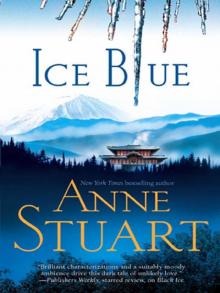 Ice Blue
Ice Blue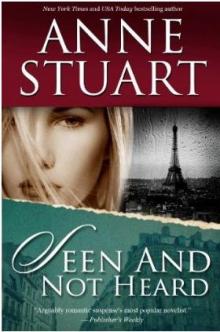 Seen and Not Heard
Seen and Not Heard Never Marry a Viscount
Never Marry a Viscount Heartless
Heartless The Devil's Waltz
The Devil's Waltz Hidden Honor
Hidden Honor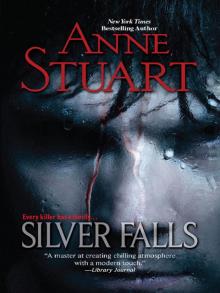 Silver Falls
Silver Falls Fire and Ice
Fire and Ice Nightfall
Nightfall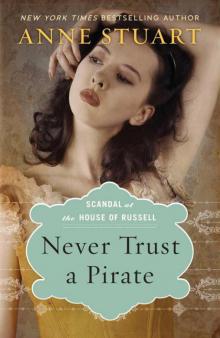 Never Trust a Pirate
Never Trust a Pirate The Soldier and the Baby
The Soldier and the Baby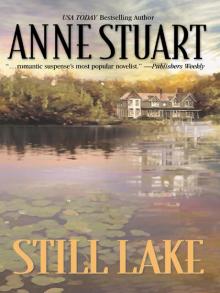 Still Lake
Still Lake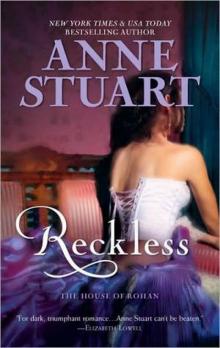 Reckless
Reckless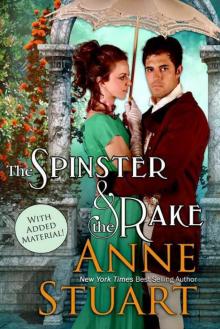 The Spinster and the Rake
The Spinster and the Rake Winter's Edge
Winter's Edge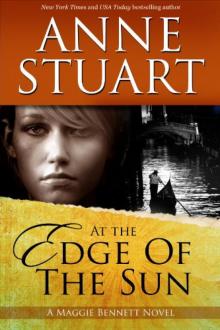 At the Edge of the Sun
At the Edge of the Sun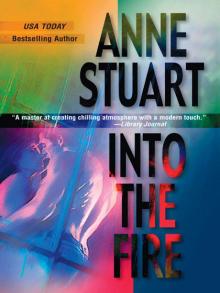 Into the Fire
Into the Fire Night of the Phantom
Night of the Phantom Ritual Sins
Ritual Sins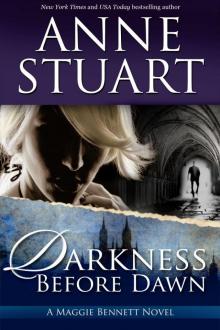 Darkness Before the Dawn
Darkness Before the Dawn Against the Wind
Against the Wind Ruthless
Ruthless The Catspaw Collection
The Catspaw Collection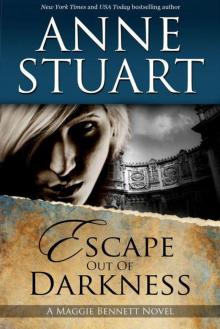 Escape Out of Darkness
Escape Out of Darkness The Widow
The Widow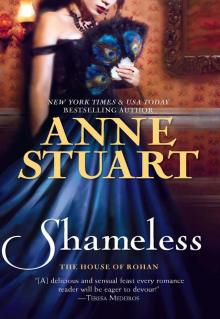 Shameless
Shameless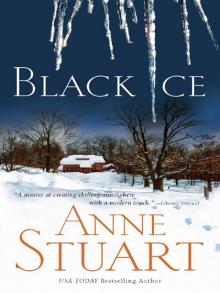 Black Ice
Black Ice Breathless
Breathless Shadows at Sunset
Shadows at Sunset Falling Angel
Falling Angel Housebound
Housebound Cold as Ice
Cold as Ice The Wicked House of Rohan
The Wicked House of Rohan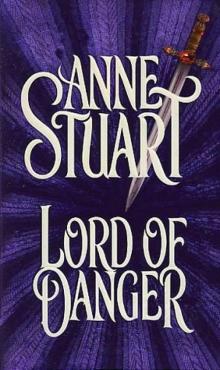 Lord of Danger
Lord of Danger The High Sheriff of Huntingdon
The High Sheriff of Huntingdon Wildfire
Wildfire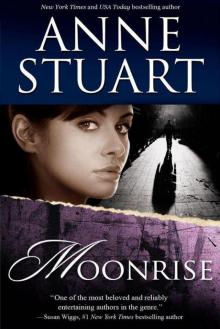 Moonrise
Moonrise The Demon Count's Daughter
The Demon Count's Daughter Date With a Devil
Date With a Devil To Love a Dark Lord
To Love a Dark Lord Driven by Fire
Driven by Fire Special Gifts
Special Gifts Ice Storm
Ice Storm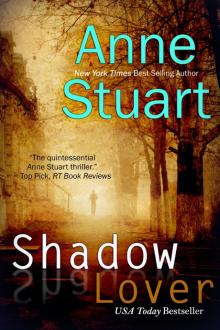 Shadow Lover
Shadow Lover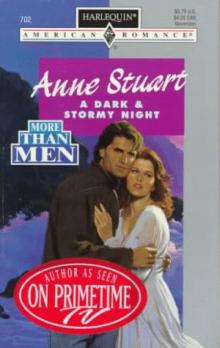 A Dark & Stormy Night
A Dark & Stormy Night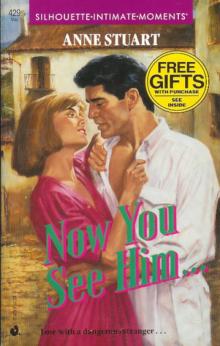 Now You See Him...
Now You See Him...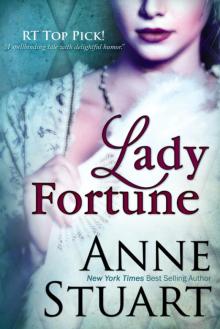 Lady Fortune
Lady Fortune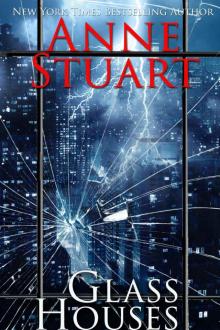 Glass Houses
Glass Houses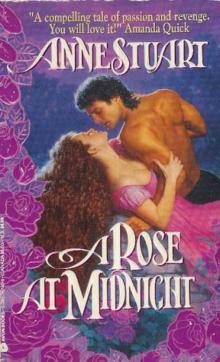 A Rose at Midnight
A Rose at Midnight Prince of Swords
Prince of Swords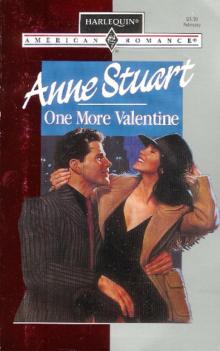 One More Valentine
One More Valentine Return to Christmas
Return to Christmas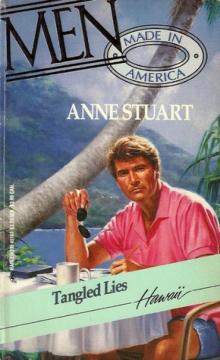 Tangled Lies
Tangled Lies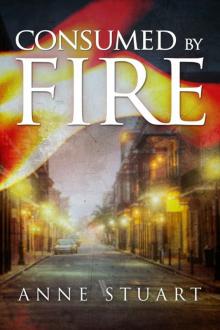 Consumed by Fire
Consumed by Fire The Fall of Maggie Brown
The Fall of Maggie Brown Wild Thing
Wild Thing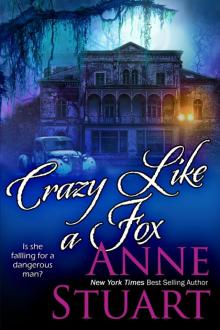 Crazy Like a Fox
Crazy Like a Fox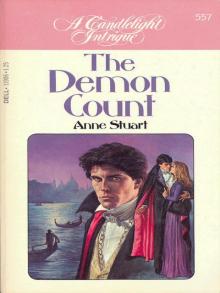 The Demon Count
The Demon Count Prince of Magic
Prince of Magic Wildfire (The Fire Series Book 3)
Wildfire (The Fire Series Book 3)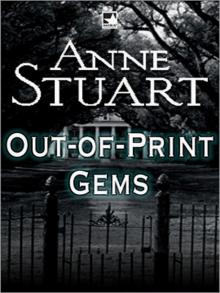 Anne Stuart's Out-of-Print Gems
Anne Stuart's Out-of-Print Gems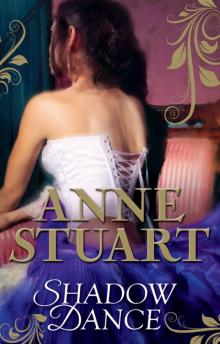 Shadow Dance
Shadow Dance Under an Enchantment: A Novella
Under an Enchantment: A Novella Demonwood
Demonwood Blue Sage (Anne Stuart's Greatest Hits Book 3)
Blue Sage (Anne Stuart's Greatest Hits Book 3)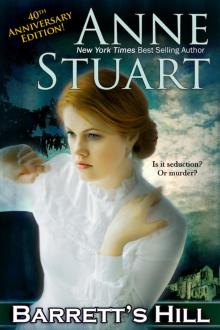 Barrett's Hill
Barrett's Hill Angel's Wings (Anne Stuart's Bad Boys Book 5)
Angel's Wings (Anne Stuart's Bad Boys Book 5)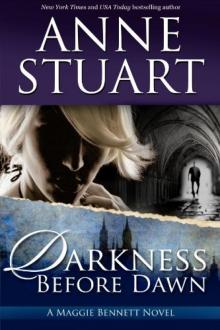 Darkness Before Dawn
Darkness Before Dawn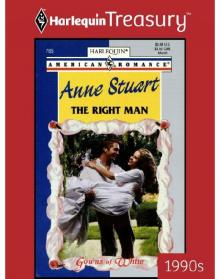 The Right Man
The Right Man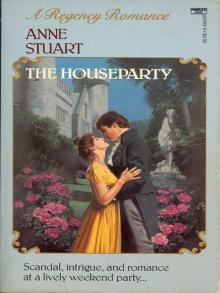 The Houseparty
The Houseparty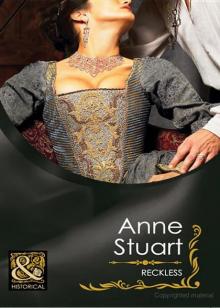 Reckless_Mills & Boon Historical
Reckless_Mills & Boon Historical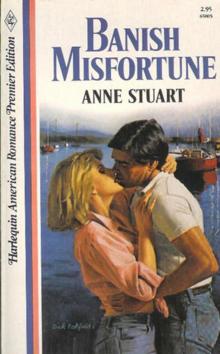 Banish Misfortune
Banish Misfortune Angel's Wings
Angel's Wings Chain of Love
Chain of Love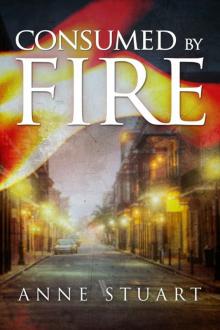 Consumed by Fire (The Fire Series)
Consumed by Fire (The Fire Series)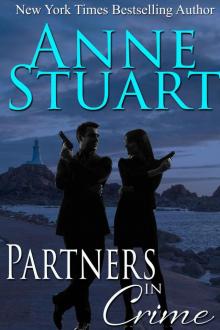 Partners in Crime (Anne Stuart's Bad Boys Book 4)
Partners in Crime (Anne Stuart's Bad Boys Book 4) The Soldier, The Nun and The Baby (Anne Stuart's Greatest Hits Book 2)
The Soldier, The Nun and The Baby (Anne Stuart's Greatest Hits Book 2)